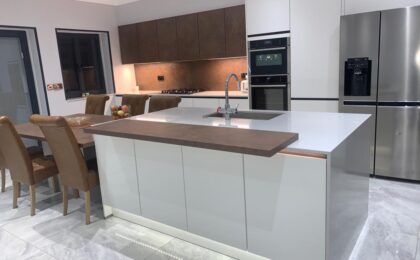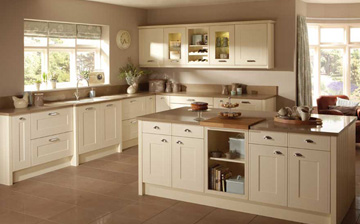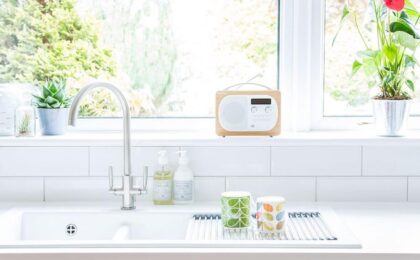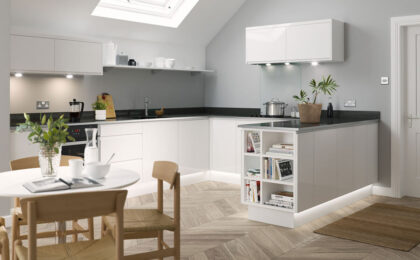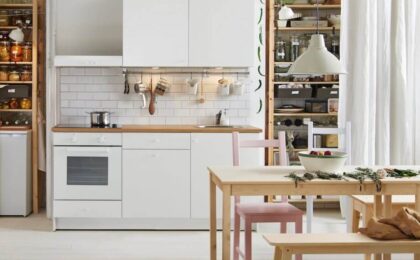How Much Does It Cost to Fit A Kitchen in the UK? A Guide
Fitting a new kitchen is a significant investment that can considerably enhance the functionality and aesthetic appeal of your home. However, understanding the costs involved can be complex, as prices vary widely depending on numerous factors such as the size of your space, the quality and type of materials and appliances you choose, and whether you opt for a DIY project or hire professional fitters. This article will explore the typical costs associated with fitting a kitchen in the UK, discuss the key elements that influence pricing, and provide valuable tips to help you plan and budget effectively for your dream kitchen project.
Factors That Affect the Cost of Kitchen Fitting
Several factors can impact the average cost of installing or renovating a kitchen. The more bespoke or structural elements you choose, the higher the price is likely to be. Here are some typical considerations:
Structural Changes: Relocating the sink, installing new drainage lines, or altering the kitchen layout usually requires more intricate plumbing and electrical modifications, which significantly increase labour costs. By keeping essential utilities in their current positions, you can often scale back the work involved.
Technological Add-Ons: High-tech appliances and gadgets can be expensive. For example, some ovens have Wi-Fi and can be controlled remotely with an app. Some induction hobs can connect automatically with extraction hoods. You can also buy faucets that dispense boiling or sparkling water. These added features usually cost more.
Kitchen Size: Bigger kitchens require more flooring, cabinets, and worktop materials, but buying in bulk can sometimes lead to discounts. Still, the overall cost typically increases in proportion to the room size.
Materials & Construction: Unique or creative building projects that use materials like concrete or reclaimed wood usually need special workers, which can make them more costly. Similarly, high-quality stone countertops or custom cabinets are typically more expensive than standard laminate or ready-made cupboards.
Partial vs. Full Demolition: Partial demolition means only removing certain parts of the kitchen, not everything. If things like cabinets, floors, or electrical systems are still in good shape, you can upgrade the parts that need it. For example, a kitchen that works well might only need new doors, handles, or countertops to look fresh.
Desired Standard: Your choice of worktops, appliances, and finishes affects the total cost. Stone or quartz surfaces look good and last a long time, but cheaper laminate can also look nice and costs less.
Choice of Contractors: Labour is a big part of the cost in any renovation. If you’re hiring many workers like plumbers, electricians, carpenters, floor installers, and decorators, it’s helpful if they work well together. Some kitchen companies have special deals with big brands or manufacturers, which can lower material costs. But always check if the prices include plumbing, electrical work, and installation, or if those costs are separate.
Major Cost Considerations for Kitchen Installation
To help manage your budget effectively, it’s crucial to understand what is included and what is not in the cost of fitting a kitchen. Installing or renovating a kitchen can involve the fitting and updating of the following elements:
Units
Installing kitchen units typically costs between £40 and £55 per cabinet. It usually takes one to three hours, depending on the kitchen’s size and complexity. For example, high-end kitchens may include spaces for appliances like fridge-freezers and washing machines. The price of units varies based on their size, material, and design. Bare cupboards for a small kitchen can cost around £1,000, while more elaborate Shaker-style cabinets for a large kitchen can reach up to £7,000.
Worktops
You can expect to pay between £200 and £470 to have your worktops fitted. The total cost depends on the size of your kitchen and the material you choose. Basic laminate worktops typically cost between £400 and £600, which is approximately £35 to £60 per square metre. Higher-end materials like marble, granite, and quartz can cost thousands of pounds. Natural stones like marble can range from £300 to £1000 per square metre, depending on thickness and quality. These materials are not only expensive but also heavy and require longer installation times than wooden or composite worktops. Usually, installation takes one to two days, depending on the worktops you pick.
Sink
Expect to pay about £100 for fitting your sink and between £170 and £220 for plumbing work, which might include changing taps, replacing pipes, and checking drains. The job usually takes 2 to 4 hours, depending on your sink’s installation complexity. If you choose a more complicated tap or one with special features, it may take longer to install. A stainless-steel sink costs around £50, while a high-end ceramic or composite sink can cost about £300. Basic taps are around £20, but high-end designer taps can cost up to £200. Pull-out spray taps typically cost £100 or more.
Plastering
Plastering your kitchen, especially where old units and appliances were removed, can cost up to £60 per square metre. The job can take between six hours and three days, depending on the size of area that needs to be skimmed.
Tiling
A tiler usually charges about £65 per square metre for tiling. The cost can vary depending on the size of the tiles and the complexity of the pattern you want. Smaller tiles take longer to install, while larger tiles are quicker to lay. Ceramic tiles tend to be cheaper, costing between £20 and £40 per square metre. Porcelain tiles are generally a bit more expensive, costing between £25 and £50 per square metre.
Flooring
For flooring, you can expect to pay between £130 and £165 per square metre for fitting. The cost varies depending on the material used. This part of the job typically takes around five hours to two days. The cost of kitchen flooring, whether it’s laminate or high-quality vinyl tiles, ranges from £50 to £90 per square metre, and is influenced by your desired look and feel.
Heating
Heating costs are usually given per square metre, ranging from £130 to £165. Installation can take from five hours to two days, depending on the floor size. Radiators range from £50 for basic models to £400 for mid-range, and designer versions can cost up to £1500.
Lighting
Expect to pay around £140 for a qualified electrician to fit a ceiling light, which typically takes 1 to 3 hours. Adding extra lights, such as under-cabinet or under-island lights, will increase both the time and cost. Downlighters normally cost between £10 and £15 each. A central light fixture can range from £50 to £100, depending on its size and style. Fitting four under-cabinet lights might cost you about £270.
Practical Tips to Save Kitchen Fitting Costs
For a more affordable kitchen renovation, create a detailed budget, stick to the existing layout to minimise plumbing and electrical changes, remove old units yourself, opt for budget-friendly materials like vinyl flooring and quartz countertops, and get quotes from several local fitters to compare installation costs.
Draw Up a Detailed Budget: Figure out your priorities and allocate funds accordingly to avoid overspending.
Set Aside Emergency Funds: Allocate a portion of your budget for unexpected costs that may arise during the renovation.
Plan for the Whole Project: Account for all elements, including cabinets, worktops, appliances, flooring, lighting, and any necessary repairs or decoration work.
Keep the Existing Layout: Moving plumbing and electrical points is a significant expense, so sticking with the current layout saves money.
Choose Affordable, Durable Materials: Look for cost-effective alternatives like quartz or solid surface countertops, vinyl or laminate flooring, and stainless-steel sinks.
Consider Refacing Cabinets: Instead of replacing all cabinets, you can reface existing ones or opt for more affordable RTA options for a new look at a lower price.
Explore Open Shelving: For large kitchens, open shelving can be a cost-effective way to cut down the expense of extensive cabinetry.
Dismantle the Old Kitchen Yourself: Remove old units, appliances, and flooring to save on labour costs, but hire professionals for handling hazardous materials like asbestos.
Hire Local Fitters & Compare Quotes: Get at least three quotes from different local contractors to ensure you’re getting a competitive price for the fitting work.
Do Some Prep Work: Before the fitting begins, prepare the kitchen by plastering walls, painting, and levelling floors to make the installation process easier and faster.
Conclusion
Fitting a kitchen in the UK can cost different amounts depending on factors like the size of the space, the quality and type of materials and appliances, and whether you do it yourself or hire professionals. It’s important to plan your budget carefully, research prices, and include costs like plumbing, electrical work, and possible changes to the space. This way, you can complete your kitchen renovation within your budget and get the look and function you want. Proper planning and comparing options will help make your kitchen fitting project successful and satisfying.


